Find Help
More Items From Ergsy search
-
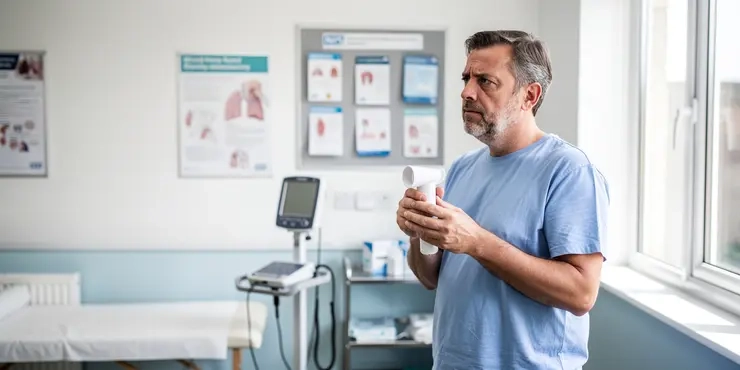
COPD | NHS
Relevance: 100%
-
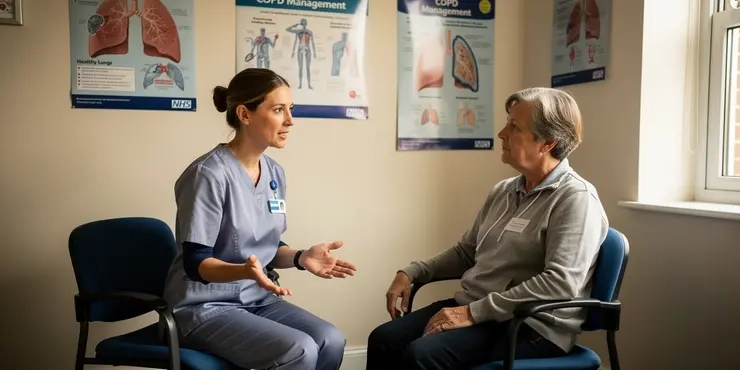
Myths about COPD
Relevance: 95%
-
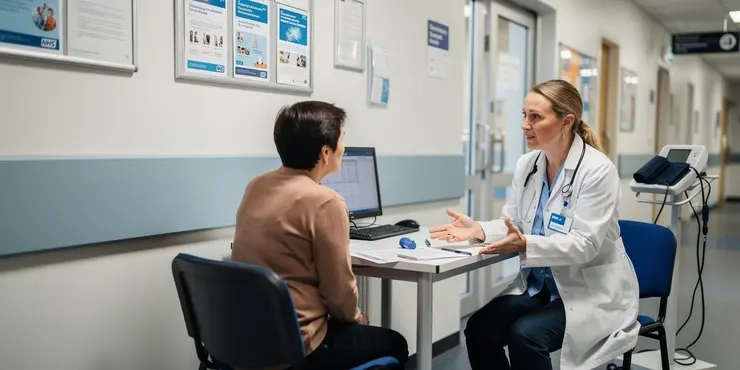
Acute COPD in Adults: Antibiotics or not - Dr Nick Francis
Relevance: 83%
-
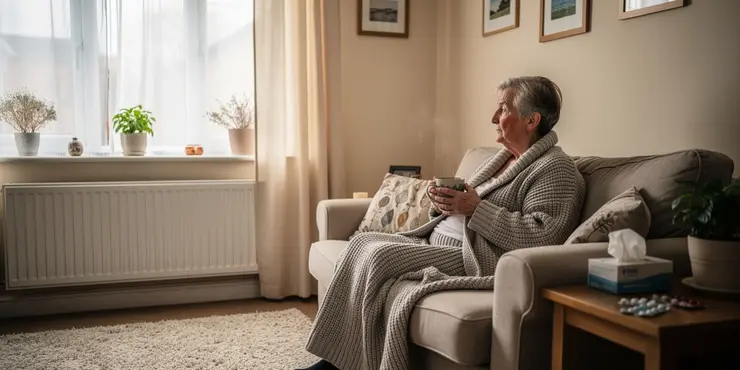
Chest infection: what should I do?
Relevance: 24%
-
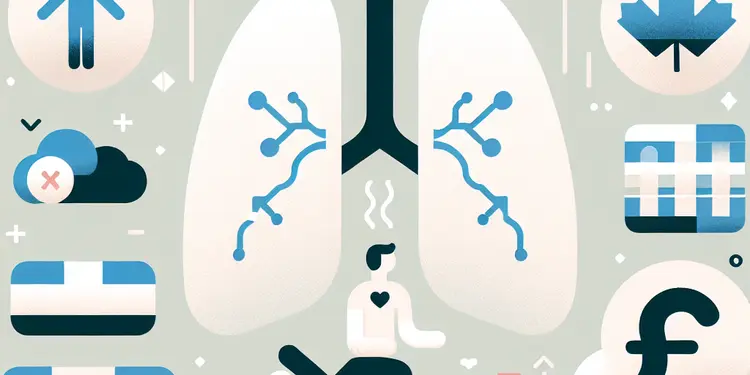
Are there any exercises involved in air physiotherapy?
Relevance: 22%
-
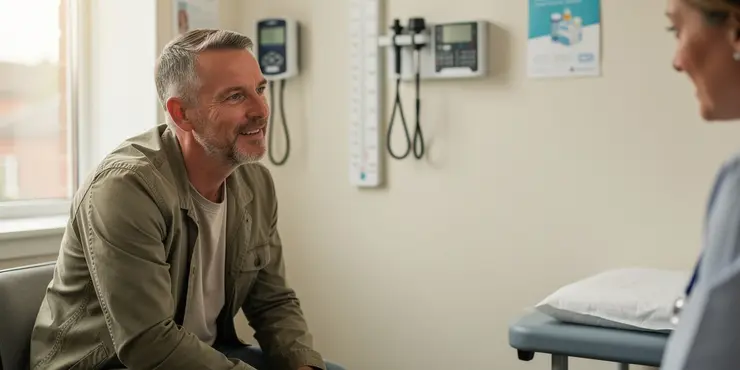
Bernard's Story - Lung Transplant
Relevance: 20%
-

Is a prescription needed for air physiotherapy?
Relevance: 18%
-
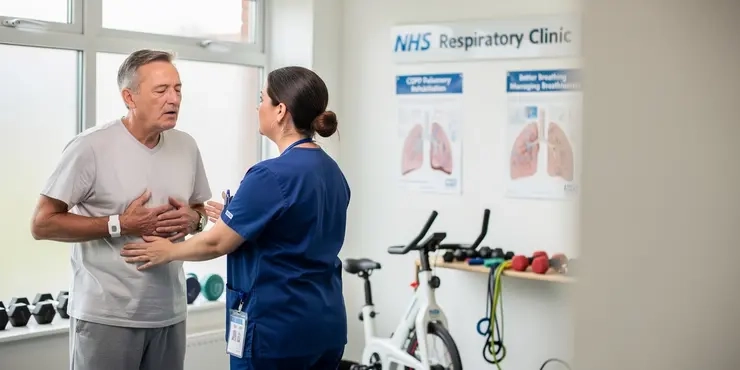
Pulmonary rehabilitation | NHS
Relevance: 18%
-

Can air physiotherapy prevent respiratory infections?
Relevance: 18%
-
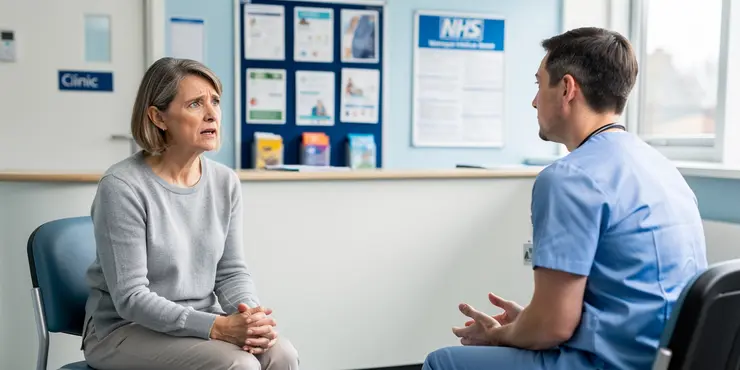
Had a cough for three weeks or more? It could be a warning sign | NHS
Relevance: 17%
-
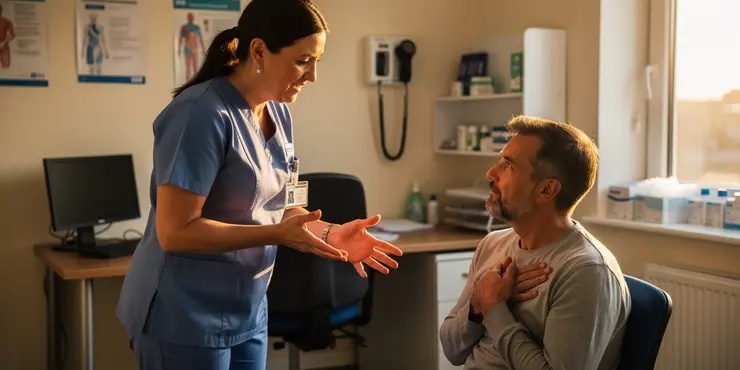
Chest clearance techniques
Relevance: 17%
-

What is air physiotherapy?
Relevance: 17%
-

How often should one perform air physiotherapy?
Relevance: 17%
-
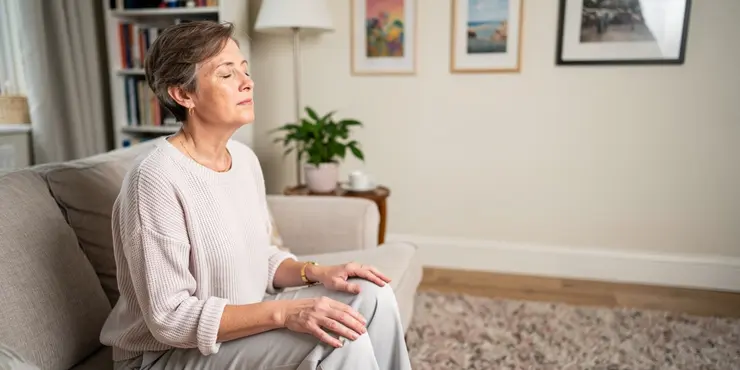
Clearing Your Chest with Breathing Exercises
Relevance: 16%
-
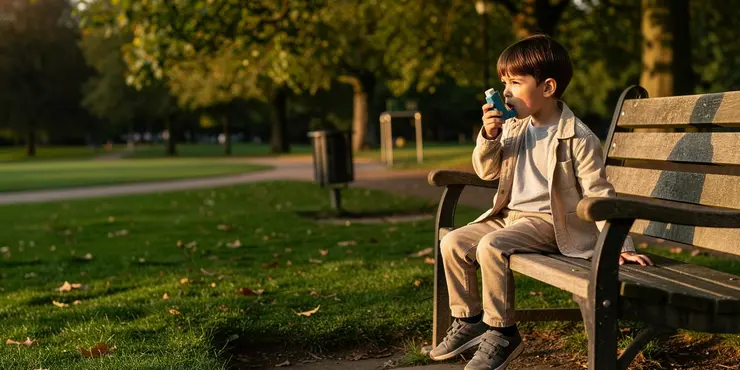
Is asthma more common in certain age groups?
Relevance: 16%
-
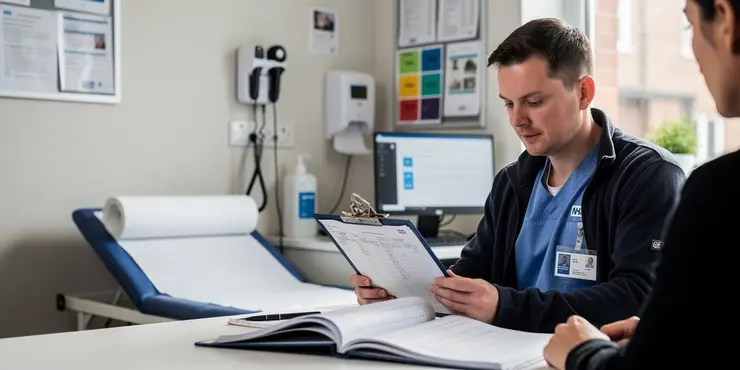
High Air Pollution Levels Linked to Rising Cases of Respiratory Issues
Relevance: 16%
-

Are certain populations more at risk during the 2026 flu season?
Relevance: 16%
-
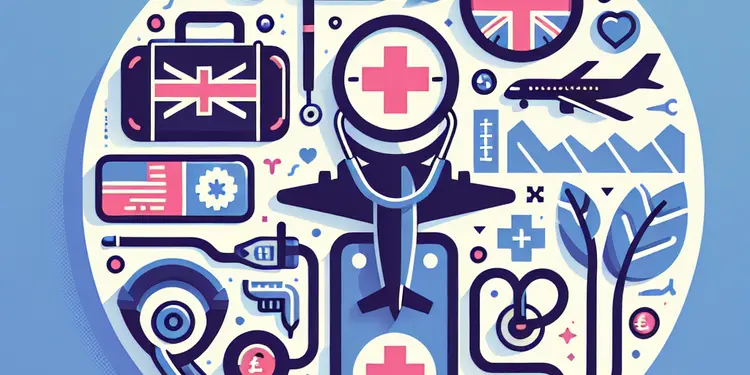
What qualifications should a provider of air physiotherapy have?
Relevance: 16%
-
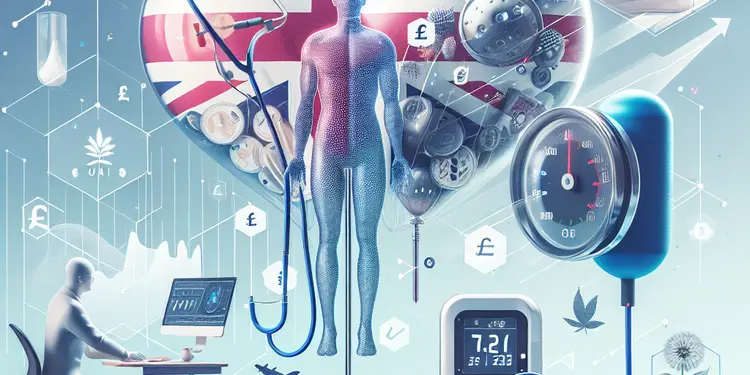
Who can benefit from air physiotherapy?
Relevance: 16%
-
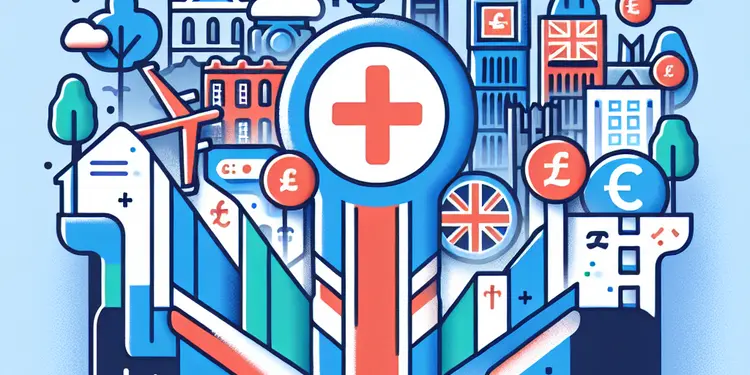
How does air physiotherapy work?
Relevance: 16%
-

What types of conditions can be managed on a virtual ward?
Relevance: 15%
-
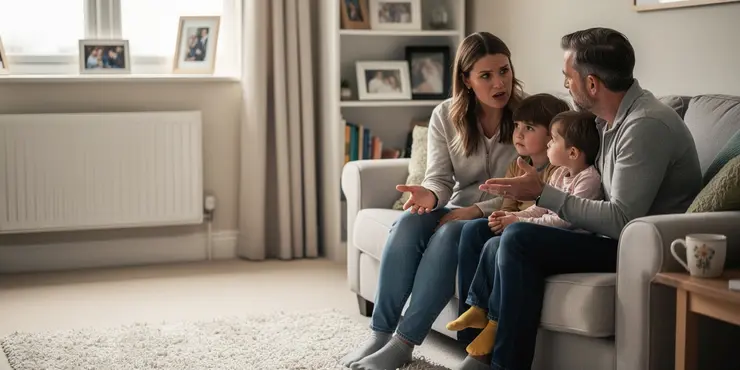
Understanding and Managing Respiratory Illnesses in Families
Relevance: 15%
-

What equipment is used in air physiotherapy?
Relevance: 14%
-
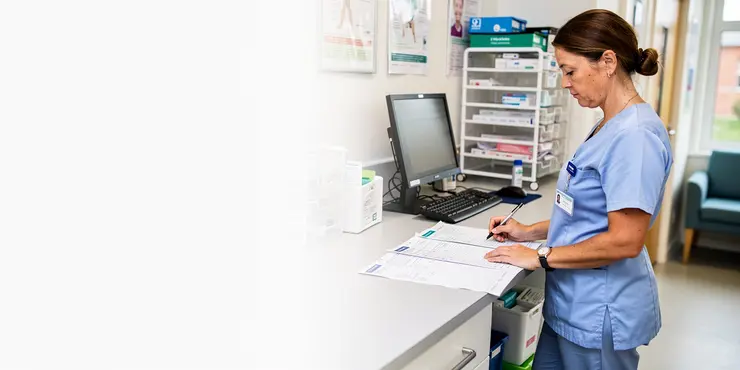
GP Nursing Most Common Medications UK.
Relevance: 13%
-
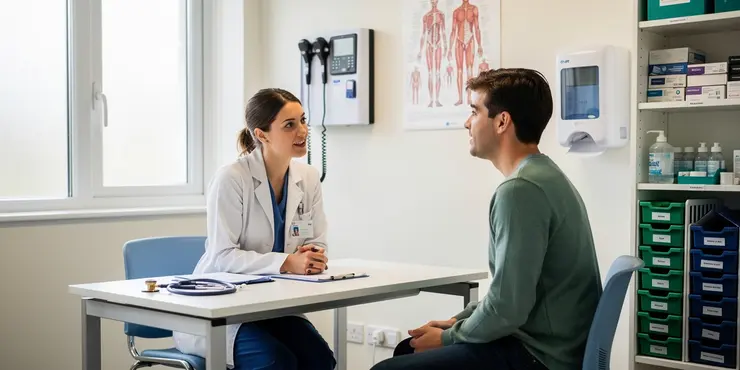
Are there different types of asthma?
Relevance: 13%
-
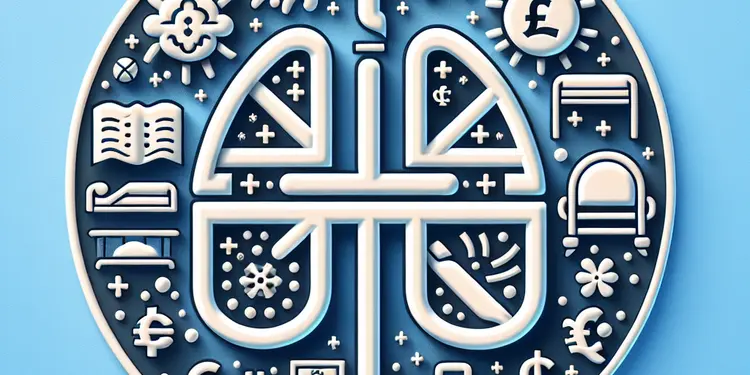
Are there any respiratory benefits linked to using sunbeds?
Relevance: 12%
-

Does air physiotherapy involve medication?
Relevance: 11%
-
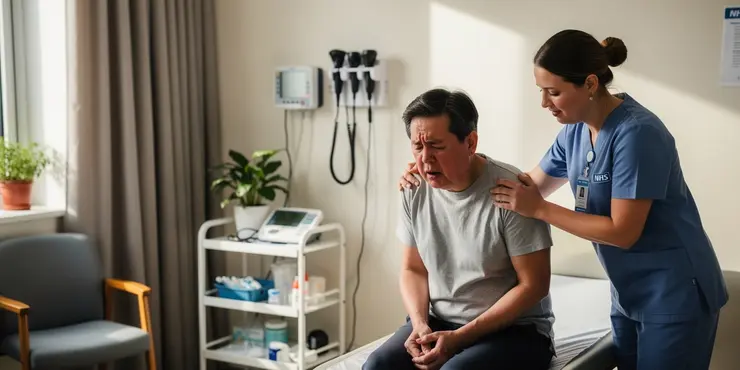
Positioning for Breathless Patient
Relevance: 11%
-
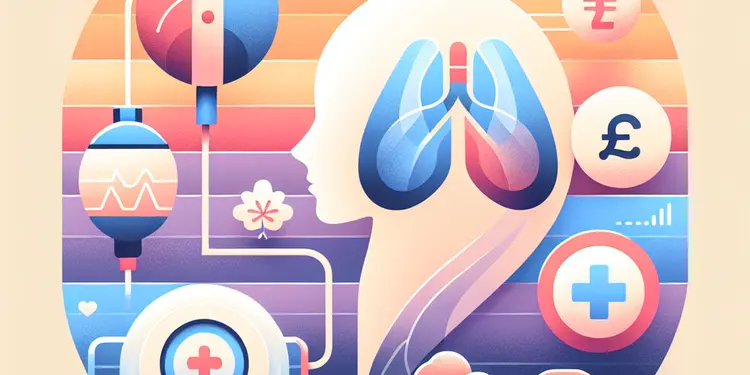
How does PEP therapy work in air physiotherapy?
Relevance: 11%
-
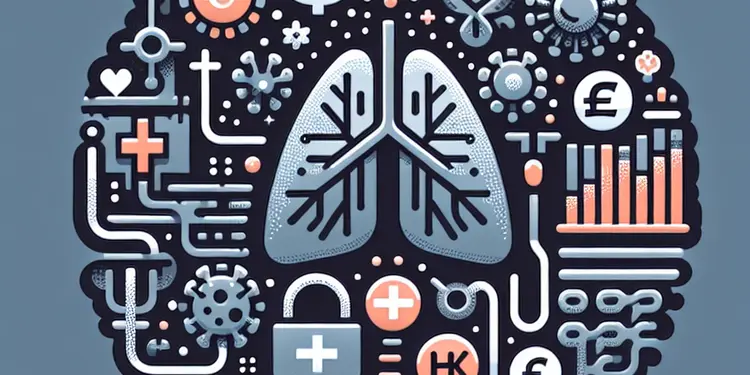
What are some complications associated with H3N2?
Relevance: 11%
-
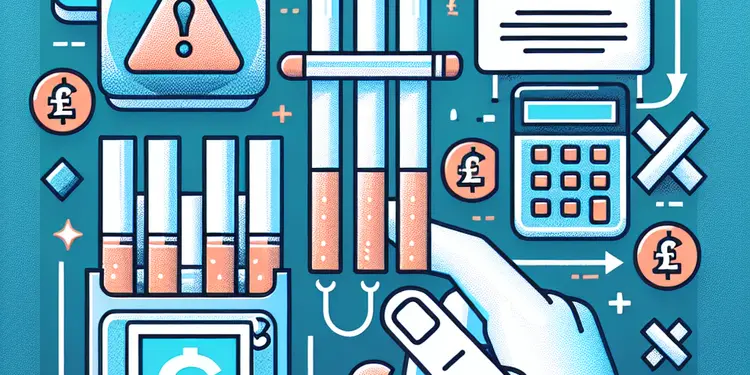
Are there any health risks associated with nicotine pouches?
Relevance: 11%
-

How do I enroll in a virtual ward program?
Relevance: 11%
-
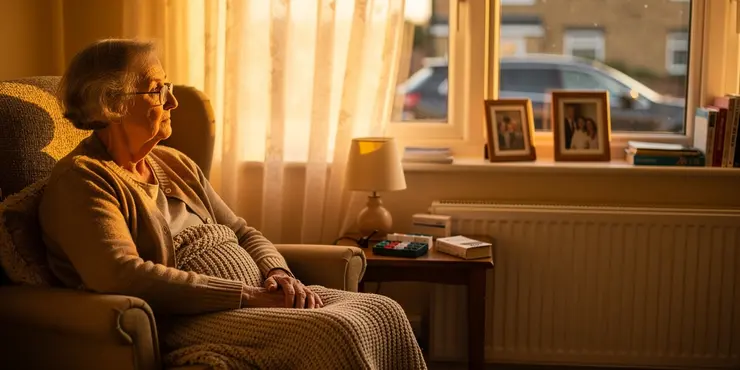
Who should get the winter flu jab?
Relevance: 11%
-
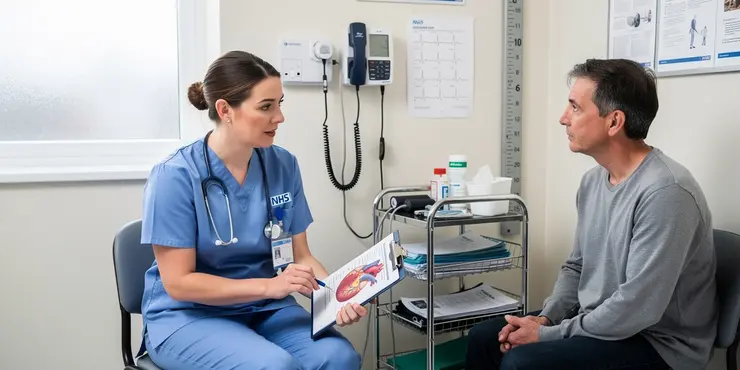
What causes heart failure?
Relevance: 11%
-
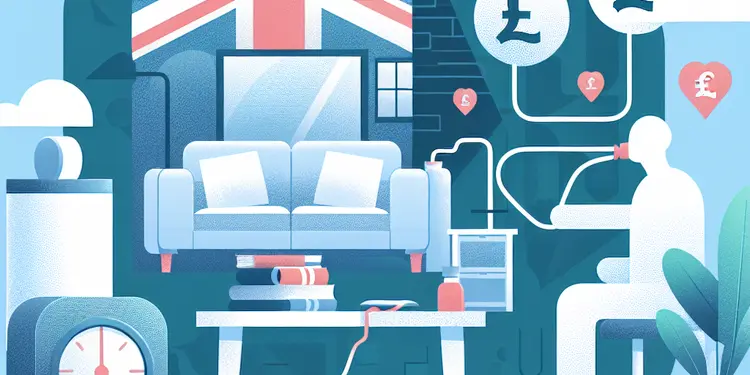
Can air physiotherapy be done at home?
Relevance: 10%
-
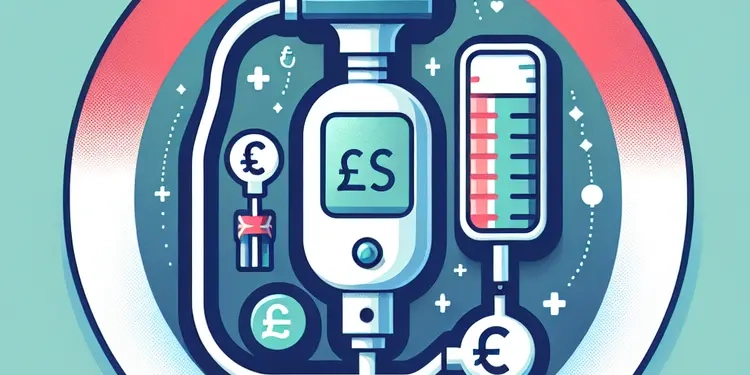
What is an incentive spirometer in air physiotherapy?
Relevance: 10%
-
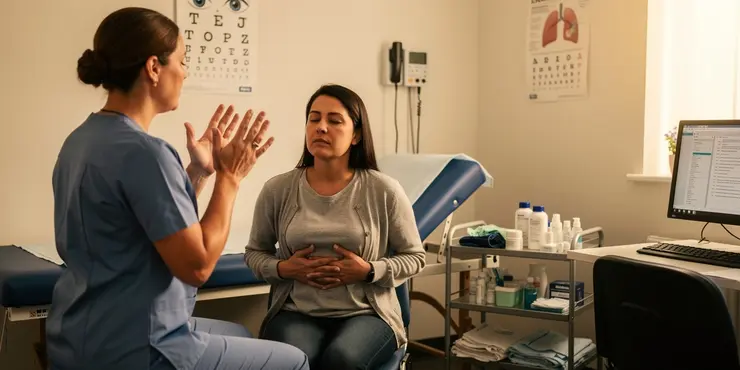
Tips for breathlessness | NHS
Relevance: 10%
-
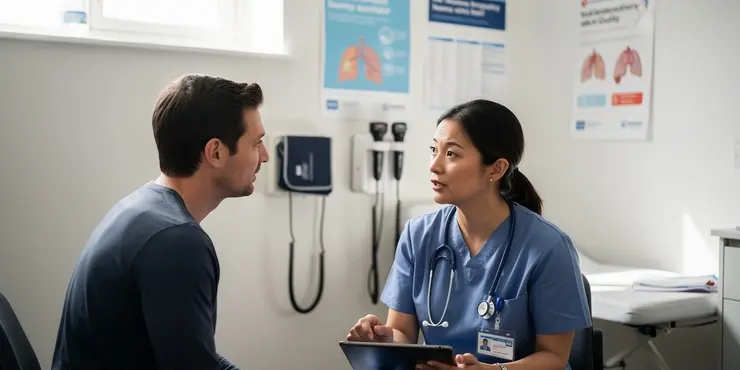
Air Pollution and Lung Cancer
Relevance: 8%
-
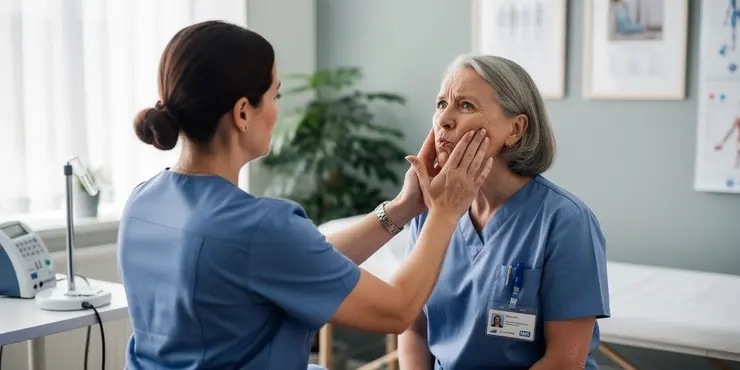
NHSGGC - Respiratory Physiotherapy Service: Self-Management
Relevance: 6%
-
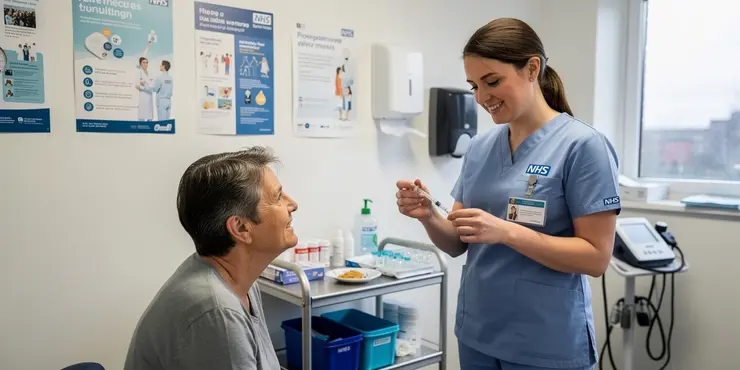
Is the flu vaccine free for everyone in the UK?
Relevance: 6%
Understanding Chronic Obstructive Pulmonary Disease (COPD)
What is COPD?
Chronic Obstructive Pulmonary Disease (COPD) is a long-term condition that results in obstructed airflow from the lungs. It encompasses chronic bronchitis and emphysema, which cause inflammation of the airways, increasing mucus production, and damaging the air sacs in the lungs. COPD leads to breathing difficulties and can significantly impact quality of life.Symptoms of COPD
The key symptoms of COPD include:- Persistent cough, often with mucus
- Frequent respiratory infections
- Shortness of breath, especially during physical activities
- Wheezing and chest tightness
Causes and Risk Factors
The primary cause of COPD in the UK is smoking. Long-term exposure to tobacco smoke irritates and inflames the lungs, leading to the development of COPD. Other risk factors include:- Exposure to air pollution
- Occupational exposure to dust, fumes, and chemicals
- Genetic predispositions
- History of respiratory infections during childhood
Diagnosis and Treatment
Diagnosing COPD typically involves pulmonary function tests, such as spirometry, chest X-rays, and blood tests. Treatment aims to alleviate symptoms and slow progression, which includes:- Smoking cessation support
- Inhalers containing bronchodilators and steroids
- Pulmonary rehabilitation programmes
- Oxygen therapy for severe cases
- Medications to manage exacerbations
Living with COPD
COPD management also involves lifestyle changes to enhance well-being, such as:- Maintaining a healthy diet and weight
- Engaging in regular physical activity suitable for one's condition
- Avoiding respiratory irritants and ensuring vaccinations are up to date
- Practising breathing techniques recommended by healthcare providers
- Regularly monitoring symptoms and consulting healthcare providers for ongoing management strategies
Support and Resources
Living with COPD can be challenging, but numerous resources are available. The NHS provides comprehensive care, including access to specialist respiratory clinics and support groups. Charities such as the British Lung Foundation offer valuable information and community support for patients and their families.Early intervention, diligent management, and supportive care are vital in improving the quality of life for those living with COPD.
Understanding Chronic Obstructive Pulmonary Disease (COPD)
What is COPD?
COPD is a long-term disease that makes it hard to breathe. It happens when the airways in the lungs get irritated and damaged. This makes you cough a lot and can cause problems with breathing.Symptoms of COPD
The main signs of COPD are:- Always having a cough with slimy stuff (mucus)
- Getting lung infections often
- Finding it hard to breathe, especially when moving around
- Making a whistling sound when breathing and feeling your chest is tight
Causes and Risk Factors
Smoking is the main cause of COPD in the UK. Breathing in smoke for a long time hurts the lungs. Other things that can increase the risk are:- Breathing in dirty air
- Working with dust, fumes, and chemicals
- Having family members with COPD
- Having lung infections as a child
Diagnosis and Treatment
To find out if you have COPD, doctors use breathing tests, chest pictures (X-rays), and blood tests. To help with symptoms, you may need:- Help to stop smoking
- Medicines you breathe in (inhalers) to open the airways
- Exercise programs to help you breathe better
- Extra oxygen for very bad cases
- Pills to help when symptoms get worse
Living with COPD
To live better with COPD, you can:- Eat healthy and keep a good weight
- Do exercises that are safe for you
- Stay away from things that can make breathing worse, and get your vaccines
- Learn special ways to breathe from doctors
- Watch your symptoms and talk to doctors for help
Support and Resources
Living with COPD can be tough, but there is help. The NHS offers care, special clinics, and support groups. The British Lung Foundation provides helpful info and support for patients and their families.Finding and treating COPD early, managing it well, and having support can really help people with COPD feel better.
Frequently Asked Questions
What is COPD?
COPD, or Chronic Obstructive Pulmonary Disease, is the name for a group of lung conditions that cause breathing difficulties, including emphysema and chronic bronchitis.
What are the main symptoms of COPD?
The main symptoms of COPD are increasing breathlessness, a persistent chesty cough with phlegm, frequent chest infections, and persistent wheezing.
How is COPD diagnosed?
COPD is diagnosed through a combination of patient history, physical examination, and lung function tests such as spirometry.
Who is at risk of developing COPD?
COPD is most commonly seen in people over the age of 40 who are, or have been, long-term smokers. It can also affect people who have been exposed to long-term air pollution, chemical fumes, or dust.
Can COPD be cured?
There is currently no cure for COPD, but treatments are available to help manage the symptoms and improve quality of life.
What treatments are available for COPD?
Treatments for COPD include quitting smoking, inhalers, medications, pulmonary rehabilitation, and in some cases, surgery or lung transplants.
How does quitting smoking help with COPD?
Quitting smoking is the most important thing you can do to slow the progression of COPD. It helps to improve lung function and reduce symptoms.
What lifestyle changes can help manage COPD?
Lifestyle changes that can help manage COPD include quitting smoking, eating a healthy diet, staying physically active, and avoiding lung irritants.
What is pulmonary rehabilitation?
Pulmonary rehabilitation is a specialised program of exercise and education designed to help people with COPD manage their condition and improve their quality of life.
How often should someone with COPD see their GP?
People with COPD should have regular reviews with their GP or specialist to monitor their condition and adjust treatment if necessary.
Are there support groups for people with COPD in the UK?
Yes, there are several support groups and charities that offer support and information for people living with COPD, such as the British Lung Foundation.
Can exercise help with COPD?
Yes, regular exercise can help improve breathing, increase energy levels, and reduce symptoms of COPD.
What should someone with COPD do if they have a flare-up?
If you have a flare-up of COPD symptoms, you should follow your prescribed action plan, which may include taking extra medication, using inhalers, and seeking medical advice if necessary.
Can diet affect COPD?
Yes, a balanced diet can help maintain overall health and energy levels, which is particularly important for people with COPD. It’s advisable to consult with a dietitian for personalised advice.
Is COPD a hereditary condition?
While smoking is the most common cause of COPD, there are some genetic factors, such as alpha-1 antitrypsin deficiency, that can increase the risk of developing COPD.
What is COPD?
COPD stands for Chronic Obstructive Pulmonary Disease. It is a lung illness. People with COPD find it hard to breathe. This happens because the lungs are damaged.
Signs of COPD:
- Coughing a lot
- Finding it hard to breathe
- Making wheezing noises when breathing
If you or someone you know finds it hard to read, try these tips:
- Listen to audiobooks or use a text-to-speech tool.
- Use a dictionary to understand hard words.
- Ask someone to read with you and explain things.
COPD is a lung sickness. It makes it hard to breathe. It includes emphysema and chronic bronchitis.
What are the main signs of COPD?
COPD means your lungs have trouble working.
Here are the main signs:
- Coughing a lot
- Finding it hard to breathe
- Feeling very tired
- Lots of mucus (sticky stuff in your throat)
If you think you have these signs, talk to a doctor. You can also ask someone to go with you to help.
The main signs of COPD are:
- Getting out of breath easily.
- A cough that doesn't go away and has mucus.
- Frequent chest infections.
- Wheezing that doesn't stop.
To help understand this, you can:
- Use picture cards to match symptoms.
- Listen to an audio version of this list.
- Ask someone to explain the symptoms in simple words.
How do doctors find out if someone has COPD?
Doctors find out if someone has COPD by doing a few things. First, they ask about your health and past illnesses. Then, they listen to your heart and lungs to see how they sound. They also do a test called spirometry to see how well your lungs work.
Who can get COPD?
COPD mostly happens to people over 40 years old. These people may have smoked for a long time. It can also happen to people who have been around dirty air, strong smells from chemicals, or lots of dust for a long time.
Can COPD be cured?
COPD is a lung problem that makes it hard to breathe.
There is no cure for COPD.
But doctors can help you feel better.
They can give you medicine and show you exercises.
You can use tools like:
- A spacer with your inhaler to help you breathe medicine.
- A peak flow meter to check your breathing.
Ask your doctor for more ways to help.
Right now, there is no way to fix COPD completely. But there are ways to help you feel better and make life easier.
What can help if you have COPD?
COPD is a lung sickness. It can make it hard to breathe. But there are things that can help with COPD:
1. Medicine: There are pills and puffers (inhalers) that make breathing easier. A doctor can tell you what medicine is right for you.
2. Breathing Exercises: Special exercises can help your lungs work better. Ask a therapist or doctor about these exercises.
3. Healthy Habits: Eating good food and staying active can help you feel better. Try to eat fruits and vegetables every day.
4. Stop Smoking: If you smoke, try to stop. Smoking makes COPD worse. Ask a doctor for help to quit smoking.
5. Use Tools: Some people use a special mask or machine to help them breathe at night. A doctor can tell you if you need one.
If you want more help, talk to your doctor. They can help you feel better!
Treatment for COPD includes stopping smoking, using inhalers, taking medicine, doing breathing exercises, and sometimes having surgery or getting new lungs.
What happens to your lungs when you stop smoking?
Stopping smoking is the best thing you can do to help your lungs get better if you have COPD. It helps your lungs work better and makes you feel better.
How can I live better with COPD?
To help with COPD (a breathing problem), try these things:
- Stop smoking. Smoking is bad for your lungs.
- Eat healthy foods like fruits and vegetables.
- Move your body. Do activities like walking or playing outside.
- Stay away from things that hurt your lungs, like smoke or dust.
You can use special tools to help, like making a plan with your doctor or using an app to remind you to stay active.
What is lung rehab?
Lung rehab is a program to help people with breathing problems.
It teaches how to breathe better and get stronger.
Lung rehab includes exercise, education, and support.
Tools like simple breathing exercises and apps can help.
Pulmonary rehabilitation is a special program. It helps people with COPD. COPD is a lung problem. This program has two parts: exercise and learning. It teaches people how to take care of themselves and feel better.
How often should a person with COPD visit their doctor?
COPD is a long-term lung problem. It makes it hard to breathe.
People with COPD should see their doctor regularly. This means going often, not just if they feel sick.
Your doctor helps you stay healthy. They can give you medicine and tips.
A good idea is to visit the doctor at least 2 times every year.
If you feel worse, see the doctor sooner. They can help make it better.
Remember, the doctor is there to help you! Don't be afraid to ask questions.
You can use a calendar to mark your doctor visit days.
Family or friends can go with you to help remember what the doctor says.
People with COPD need to see their doctor often. The doctor will check how they are doing and change the medicine if needed.
Can I join a group for people with COPD in the UK?
Yes, there are groups to help people with COPD in the UK. These groups can give you support and help you feel better.
You can talk to other people with COPD. You can share stories and tips. It feels good to know you are not alone.
Ask your doctor or nurse about local groups. They can help you find a good one.
You can also look online for groups. There are websites that can help you.
Being in a group can help you feel strong and happy.
Yes, there are groups and charities that help people with COPD. One of them is the British Lung Foundation. They give support and information.
Can exercise help with COPD?
Exercise is doing activities that move your body. It's like walking, dancing, or playing. COPD is a lung problem that makes it hard to breathe. Exercise can help people with COPD feel better.
Here are simple ways exercise can help:
- It makes your muscles strong.
- It helps you breathe easier.
- It gives you more energy to do things you like.
How to start exercising if you have COPD:
- Talk to your doctor. They can tell you what is safe for you.
- Start slow. Walk for a few minutes and then rest.
- Ask a friend or family member to join you. It's more fun together!
Helpful tools:
- Use a timer to track how long you exercise.
- Listen to music to make exercising fun.
- Join a group or class where you can exercise with others.
Yes, doing exercise often can help you breathe better. It can give you more energy and make COPD symptoms feel less bad.
What to do if you have COPD and feel worse
If you have COPD and suddenly feel worse, follow these steps:
- Stay Calm: Try to stay calm and take slow, deep breaths.
- Use Your Inhaler: Use your inhaler or medicine as your doctor told you.
- Rest: Sit down and rest in a comfortable position.
- Seek Help: Ask someone to stay with you or call for help if you need it.
- Call Your Doctor: Let your doctor know you are feeling worse.
If you feel very bad or have trouble breathing, call emergency services right away.
Here are some tools that can help:
- Pill Organizer: To help you take your medicine on time.
- Phone Reminder: Set reminders on your phone for medicine and doctor appointments.
- Breathing Exercises: Practice simple breathing exercises daily.
If your COPD gets worse, follow the steps your doctor gave you. This might mean taking more medicine, using your inhaler, and talking to your doctor if you need help.
Can the food you eat change COPD?
COPD is a lung illness. It means Chronic Obstructive Pulmonary Disease. It can make breathing hard.
Eating healthy food is good for your body and your lungs. Good food can help you feel better.
Tips:
- Eat lots of fruits and vegetables. They help your body.
- Drink water. It keeps you healthy.
- Avoid junk food. It is not good for you.
Ask for help:
- Talk to a doctor. They can tell you what to eat.
- Use picture guides to learn about food.
Eating the right foods can help you stay healthy and have more energy, especially if you have COPD, which is a lung problem. It's a good idea to talk to a food expert, called a dietitian, who can give you advice just for you.
Can you inherit COPD from your parents?
COPD means Chronic Obstructive Pulmonary Disease. It is a lung illness.
You might wonder if it runs in families. That means if your mom or dad can pass it to you.
The answer is sometimes. COPD can be caused by smoking, but some people are more likely to get it because of their genes.
If you want to know more, talk to a doctor. You can also use pictures, simple words, or ask someone to help you understand better.
Smoking is the main reason people get sick with a disease called COPD. But sometimes, it can also be caused by something in your genes, like a problem called alpha-1 antitrypsin deficiency. This can make you more likely to get COPD.
To understand and learn better, you can use picture books, watch cartoons about health, or ask someone to explain it with simple words.
Useful Links
This website offers general information and is not a substitute for professional advice.
Always seek guidance from qualified professionals.
If you have any medical concerns or need urgent help, contact a healthcare professional or emergency services immediately.
Some of this content was generated with AI assistance. We’ve done our best to keep it accurate, helpful, and human-friendly.
- Ergsy carfully checks the information in the videos we provide here.
- Videos shown by Youtube after a video has completed, have NOT been reviewed by ERGSY.
- To view, click the arrow in centre of video.
- Most of the videos you find here will have subtitles and/or closed captions available.
- You may need to turn these on, and choose your preferred language.
- Go to the video you'd like to watch.
- If closed captions (CC) are available, settings will be visible on the bottom right of the video player.
- To turn on Captions, click settings .
- To turn off Captions, click settings again.
More Items From Ergsy search
-

COPD | NHS
Relevance: 100%
-

Myths about COPD
Relevance: 95%
-

Acute COPD in Adults: Antibiotics or not - Dr Nick Francis
Relevance: 83%
-

Chest infection: what should I do?
Relevance: 24%
-

Are there any exercises involved in air physiotherapy?
Relevance: 22%
-

Bernard's Story - Lung Transplant
Relevance: 20%
-

Is a prescription needed for air physiotherapy?
Relevance: 18%
-

Pulmonary rehabilitation | NHS
Relevance: 18%
-

Can air physiotherapy prevent respiratory infections?
Relevance: 18%
-

Had a cough for three weeks or more? It could be a warning sign | NHS
Relevance: 17%
-

Chest clearance techniques
Relevance: 17%
-

What is air physiotherapy?
Relevance: 17%
-

How often should one perform air physiotherapy?
Relevance: 17%
-

Clearing Your Chest with Breathing Exercises
Relevance: 16%
-

Is asthma more common in certain age groups?
Relevance: 16%
-

High Air Pollution Levels Linked to Rising Cases of Respiratory Issues
Relevance: 16%
-

Are certain populations more at risk during the 2026 flu season?
Relevance: 16%
-

What qualifications should a provider of air physiotherapy have?
Relevance: 16%
-

Who can benefit from air physiotherapy?
Relevance: 16%
-

How does air physiotherapy work?
Relevance: 16%
-

What types of conditions can be managed on a virtual ward?
Relevance: 15%
-

Understanding and Managing Respiratory Illnesses in Families
Relevance: 15%
-

What equipment is used in air physiotherapy?
Relevance: 14%
-

GP Nursing Most Common Medications UK.
Relevance: 13%
-

Are there different types of asthma?
Relevance: 13%
-

Are there any respiratory benefits linked to using sunbeds?
Relevance: 12%
-

Does air physiotherapy involve medication?
Relevance: 11%
-

Positioning for Breathless Patient
Relevance: 11%
-

How does PEP therapy work in air physiotherapy?
Relevance: 11%
-

What are some complications associated with H3N2?
Relevance: 11%
-

Are there any health risks associated with nicotine pouches?
Relevance: 11%
-

How do I enroll in a virtual ward program?
Relevance: 11%
-

Who should get the winter flu jab?
Relevance: 11%
-

What causes heart failure?
Relevance: 11%
-

Can air physiotherapy be done at home?
Relevance: 10%
-

What is an incentive spirometer in air physiotherapy?
Relevance: 10%
-

Tips for breathlessness | NHS
Relevance: 10%
-

Air Pollution and Lung Cancer
Relevance: 8%
-

NHSGGC - Respiratory Physiotherapy Service: Self-Management
Relevance: 6%
-

Is the flu vaccine free for everyone in the UK?
Relevance: 6%


